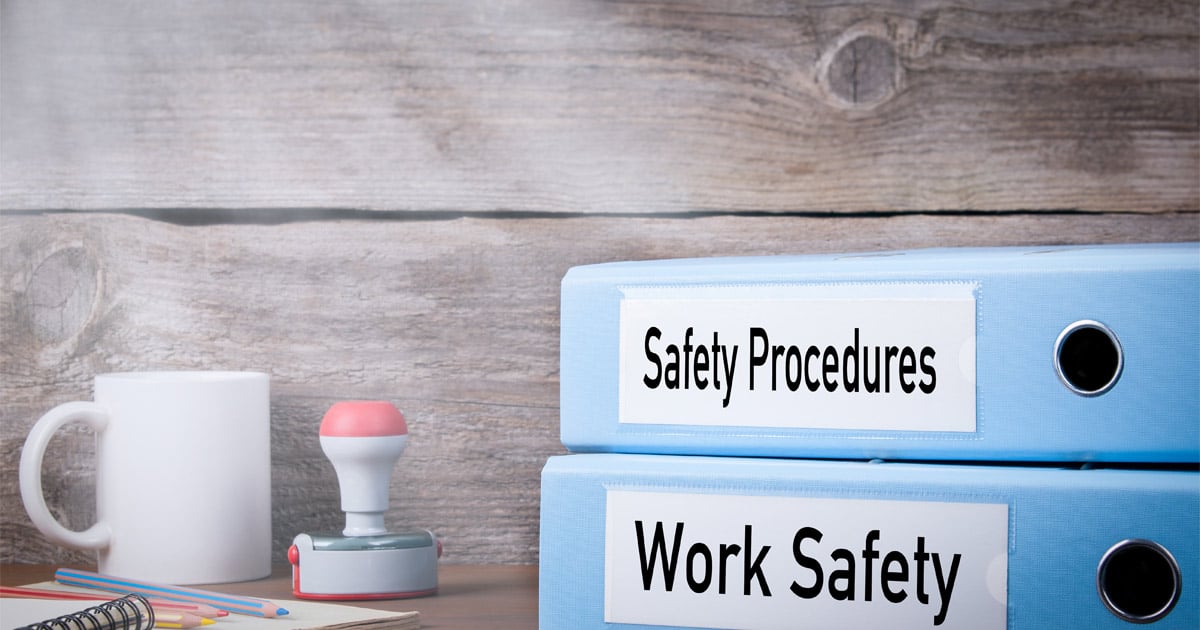
Working in an office may pose fewer risks than other jobs, such as construction or commercial fishing. Yet, office workers can still suffer from serious work injuries. Typical office work involves a significant portion of time spent sitting at a desk and using a personal computer. These tasks do not seem particularly onerous, but maintaining a rigid body position over extended periods of time can be hazardous. The following are the most common office hazards, injuries, and ways to mitigate them.
Why is it Dangerous to Sit in a Prolonged Position?
Sitting at a desk and using a computer places a number of stresses and strains on the body. The position usually involves rounded shoulders and a forward leaning head. Spending hours at a time in that same position for extended periods can cause muscular strain in the head, neck, and shoulder areas.
Over a span of years, continuously maintaining one posture for hours each day can cause bones in the neck and upper back to shift to an abnormally forward position, which is a medical condition called forward head posture (FHP). If FHP is left untreated, this condition can lead to headaches, migraines, muscle spasms, decreased lung capacity, and problems with the jaw. These conditions can become quite pronounced before pain indicates that there is a problem. If these conditions are left undiagnosed and untreated, they can worsen over time and may even become irreversible.
Chronic health conditions have also been associated with prolonged seated positions. The Mayo Clinic has linked prolonged seating positions to a number of health issues, including abnormal cholesterol levels, high blood pressure, and an elevated risk of cardiovascular disease.
What Should I Do if My Job Involves Prolonged Positions?
Corrective action involves a number of practices. It is important to ensure the workstation is arranged ergonomically to minimize undue stress; this includes an adjustable chair, appropriate height of the desk, arrangement of the keyboard, and placement of the monitor. A professional health and safety specialist can evaluate the adequacy of the equipment to be adjustable to individuals of varying sizes to ensure it is ergonomically sound.
It is also important to take rest breaks and stretch the muscles that are tensed in this position, which includes periodic stretches to the neck, shoulders, hip flexors, quadriceps, and hamstrings. These stretches will also be beneficial if they are done at home upon waking and before and after exercise.
Carpal Tunnel Syndrome
Repeatedly moving the hands, fingers, and wrists can cause strain and excessive pressure on the median nerve. Symptoms of this type of overuse include numbness, prickling or burning sensations, and muscle weakness in the hands. If it is left untreated, it can lead to carpel tunnel syndrome (CTS), which can cause frequent pain and impaired function of the hands and wrists.
Exercises can help to ease the pressure on the median nerve. For example, pressing the hand on a surface, such as a desk or wall, and then pulling up on each finger. Treatment is best sought early before extensive damage is done. In addition to exercises, it is possible to take anti-inflammatory drugs or corticosteroids. Severe cases may require surgery.
How to Reduce Eye Strain
Eye strain from staring at a computer monitor is also a common occurrence among office workers. Symptoms include soreness, burning or itchy eyes, blurred vision, and headaches. To mitigate this condition, check the work station to eliminate unnecessary sources of glare to the screen. Adjust screen settings to enlarge the size of type.
Relaxation exercises for the eyes can ease the strain if they are practiced regularly. They can reduce symptoms and may even improve focus. Also, try the 20-20-20 exercise. Look at something 20 feet away for at least 20 seconds every 20 minutes. Over-the-counter drugs or prescription eye drops can also help with dryness. It is also important to get regular eye exams and obtain prescription eyeglasses as needed. There are special anti-blue light lenses to protect the eyes from damaging monitor light emissions.
How Should I Lift Heavy Items?
Office work sometimes involves carrying heavy objects. Even large amounts of paper can be both heavy and bulky to lift and carry. Lifting improperly can cause muscle injuries in the neck and back. The risk is higher for those who lack sufficient core strength or for those who do not use proper lifting techniques. It is best to ask for help if one has to lift something very heavy. In addition, use lifting aids, such as carts, rather than carry heavy items for long distances.
Proper lifting technique involves squatting down, keeping the back straight, and lifting the object from the floor by bending the legs and not the back. Twisting movements or lifting from a standing position can cause injuries, even when lifting relatively light-weight objects.
Clean Tripping Hazards
Office settings can cause slip and fall accidents. Common workplace hazards in these settings include loose carpeting, uneven flooring, broken stairs, and missing or faulty stair rails. Additionally, electrical cords left in walkways or spilled liquids that are not cleaned up promptly can cause someone to trip or fall. A file cabinet drawer left open can cause someone to fall over it. The best prevention of these types of injuries is to avoid hurrying and to pay attention.
If an office employee becomes hurt at work, they are likely entitled to Workers’ Compensation. To help with a claim, the worker should contact a lawyer as soon as possible.
Pittsburgh Workers’ Compensation Lawyers at AlpernSchubert P.C. Help Injured Office Workers Secure Benefits
If you were injured at work, it is important to be sure your case is handled by an experienced lawyer. A Pittsburgh Workers’ Compensation lawyer at AlpernSchubert P.C. can explain your rights and help you with your claim. Call us at 412-765-1888 or complete an online form for a free consultation. Located in Pittsburgh, we serve clients throughout western Pennsylvania, including Allegheny County, Lawrence County, and Washington County.
